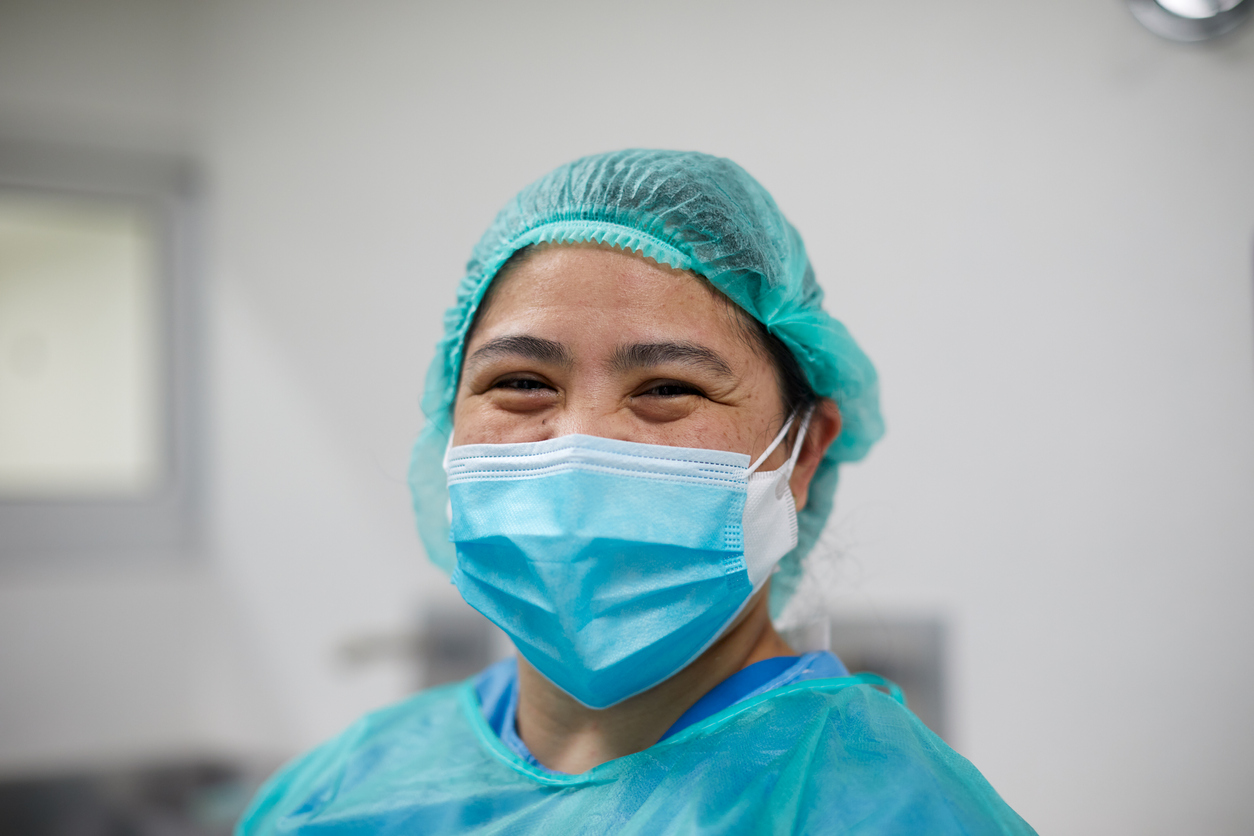On Being a Caribbean Medical Student: An Evolution From Embarrassment to Pride
- by
- Apr 12, 2016
- Reviewed by: Amy Rontal, MD

I distinctly remember sitting in one of my undergrad pre-med classes joking to a friend of mine after getting a below average MCAT score that, “I guess I’m gonna end up at a Caribbean medical school.”
About 10 years later, after finishing Medical School at Saint George’s University, I sit here laughing at the person I was.
The truth is, Caribbean Medical School was really an abstract concept at that point. I wouldn’t have been able to even tell you what the top 3 schools were—or even how their programs were even structured. At that point in my life, I was always an honors student. I graduated with over a 4.0 in high school, went on to earn mostly A’s in undergrad (except for those 3 C’s and one D in some of my chemistry courses), graduated with honors from The Ohio State University with so much volunteer, work and well rounded life experience under my belt. Despite my 23 on the MCAT (whew, that was liberating), I had this faith that as long as I got a few interviews, I could easily win over an admissions committee and show them why I would make an excellent addition to their program. My Ohio State pre-med advisor thought otherwise. When she told me I shouldn’t even apply because I wouldn’t get in, I thought she was being callous and pessimistic. Well, I guess she was right, because when it came time to apply, I didn’t get a single interview. Not even one.
I will spare you the details of the next few years and my time in the work force and just say that when I decided about 3 years later that I still wanted to pursue medicine, I reapplied, and this time I added a safety school: Saint George’s University. It turns out, that was the only interview I ever got for medical school. When I got my acceptance letter, I cried. I wasn’t crying tears of joy, I was crying because I knew that now that I finally got into medical school, I would have to go, even if it was 3,000 miles away from home. I knew this was likely the only chance I would ever get, and I would have to take it, or always wonder, “What if…?” After my acceptance, everyone who found out I was going to medical school would ask me, “Oh! Where?!”
When I would say “Saint George’s University,” I would get blank stares.
“It’s an international medical school,” I would say, trying to make it sound more distinguished.
More blank stares.
“A Caribbean school,” I added.
Suddenly a glimmer of understanding would wipe over their faces and they would knowingly, nod “Ohhhhhhh
Having to explain further would be a staple of the next several years of my life. At the time, I was embarrassed. What would my peers think of me? All my friends in pre-med were in U.S. medical schools. I was the one who joked about having to go to the Caribbean, and yet, here I was! Over time, the embarrassment would fade, but my desire to prove to others, and mostly myself, that I was a worthy candidate for an M.D. would never waver.
As a Saint George’s University student, from Day 1 (ok, maybe Day 10), we were indoctrinated to believe that we Caribbean students were walking a tightrope where one false move would cause us to fall to our demise and not match. No—really: We had multiple seminars basically just telling us how rough it is out there for us SGU students, and that we better shape up or we simply aren’t going to make it. Going into these meetings, I always had a healthy level of skepticism. Surely it isn’t that bad. Surely if we do really well we will easily succeed. Maybe we won’t become Dermatologists or Orthopedic Surgeons, but we will be great doctors. After all, anyone who goes as far as the Caribbean to pursue his or her medical dream must be dedicated and surely will succeed, and match. Once I matched, I knew I could eventually shed my Caribbean label and just be “Dr. Leila, Family Medicine Resident at XYZ institution.”
While the perception holds that we Caribbean students aren’t of the same caliber as American students, this couldn’t be further from the truth. To be quite honest with you, some of the most intelligent people I have ever met in my life have been my SGU classmates. Sometimes I would think to myself, “Why is he here?” Then I would turn inward and remind myself: “Why am I here?” We all had our reasons: Some people did poorly on the MCAT, some people didn’t apply to safety schools, some people didn’t even apply to US schools because they didn’t think they could get in, and sometimes it was completely arbitrary (bad interviewer? who knows!). While many see us as these people partying on the beach, barely studying, I see us as the most dedicated students of them all. Of course, there was plenty of partying on the beach, but what most people don’t realize is how much we had to sacrifice to pursue our dreams. We moved thousands of miles away and when we got there, nobody was holding our hand to make sure we passed. People were dropping out like flies. Once we got through, we had extremely varied clinical experiences based on our placement, but for the most part we were really hard workers who knew that we had to perform better than our American counterparts to get the same interviews for Residency.
When it came time to apply for Residency, we faced a battle unique to our class: There were now more International Medical Graduates than ever applying for the match, with dwindling residency spots all over the country. It just didn’t add up! Even still, I was so completely impressed with the amount and caliber of interviews my friends were getting; ivy league interviews, university programs, and interviews in prestigious specialties. When March 14th came around, a wave of relief poured over the majority of us, but there were still some people who didn’t match. Much like the perplexing group of highly intelligent students who couldn’t get into a U.S. medical school, there was an equally confounding group of amazing students that didn’t match. I personally know some people who had top 10% of scores on their boards but didn’t secure a residency position. What happened?
Like I said before, there were just too many of us, and the reality is, there was still a lot of prejudice toward Caribbean students throughout interview season. In fact, 8 years after my counselor at OSU told me my MCAT wouldn’t get me into medical school, I applied to Ohio State University Family Medicine with top scores on Step 1, Step 2, and an MPH to boot, and I didn’t even get an interview. I am so incredibly happy to say, however, that I matched at the Mount Carmel Family Medicine program literally just down the road and will probably end up working with their faculty anyhow!
Now that I have matched, I have the opportunity to finally shed my ‘Caribbean’ title, but the strangest thing is, I don’t want or need to anymore. Quite frankly, this entire experience was a constant uphill battle, and was at times the most frustrating time of my life—especially when faced with prejudice from U.S. residency programs. But for me to all of a sudden turn my nose up at Saint George’s University now that I was accepted in the U.S. world of Medical Academia, would not only be hypocritical, but downright shameful. I am still aware of what it means to some people when I tell them I went to SGU, but it no longer means the same thing for me. The SGU experience for me was humbling, difficult, culturally eye-opening, and a beautiful, simpler time in my life when I could live on the water and go to the beach on a whim. The SGU name doesn’t represent U.S. medical school rejects to me; it represents my friends, my Caribbean family, and some of the smartest people I have ever met.
And lastly, Saint George’s University represents the opportunity I was given to become a doctor; an opportunity nobody else would give me, and for that, I am forever grateful, indebted (literally and figuratively), and incredibly proud.









